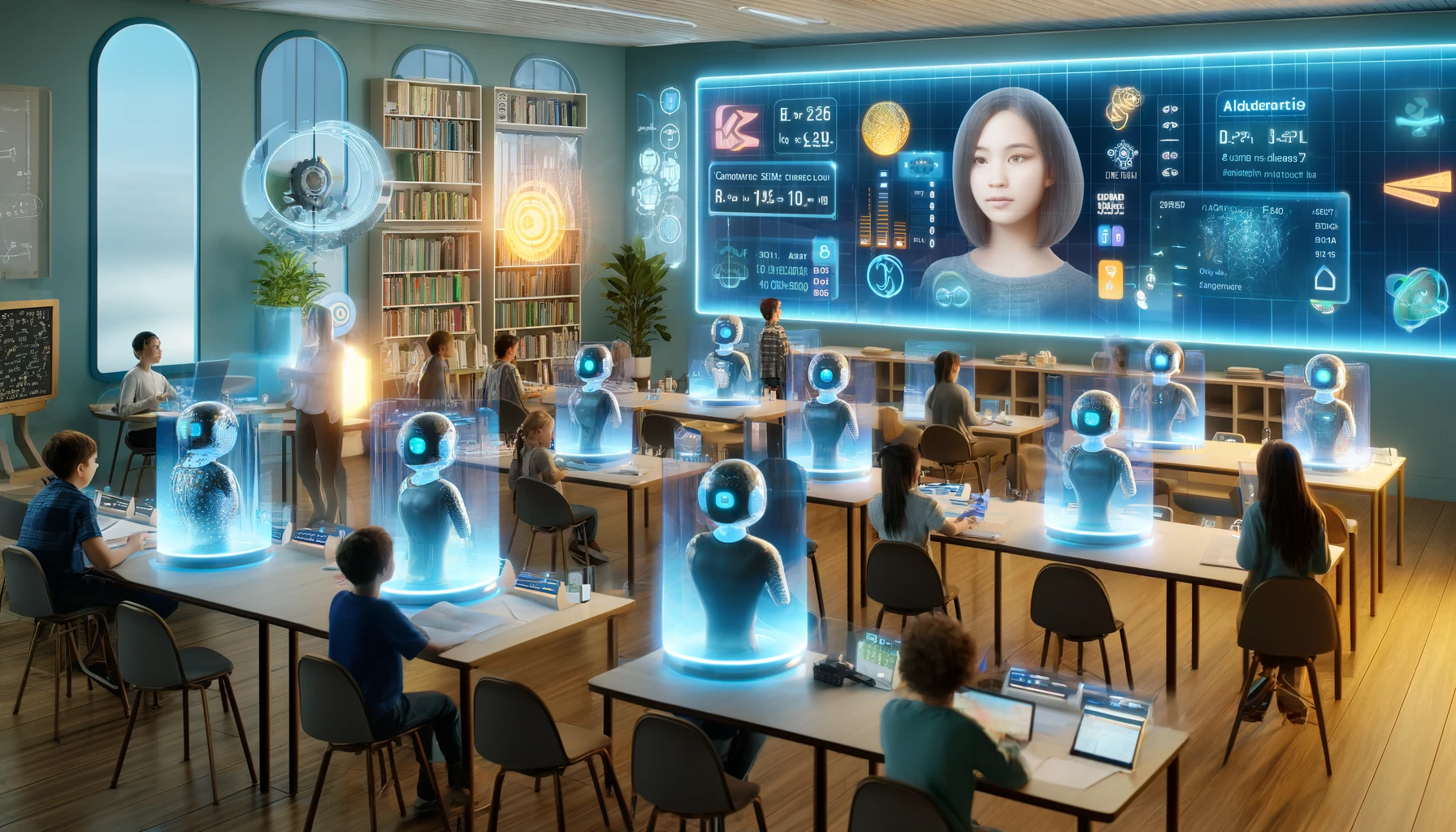The Rise of AI-Powered Tutors: How Virtual Assistants are Personalizing Learning Paths

A New Era in Education: Enter AI Tutors
Imagine walking into a classroom where your teacher knows exactly how you learn best. No, it’s not magic; it’s artificial intelligence at work. AI-powered tutors are revolutionizing education by offering personalized learning experiences tailored to each student. Companies like Squirrel AI and Cognify are leading the charge, using sophisticated algorithms to adjust the pace, style, and content of lessons according to each student’s needs. This is education in the 21st century, where learning is not a one-size-fits-all experience anymore.
What Makes AI Tutors Special?
AI tutors are like the superheroes of modern education, minus the capes. These virtual assistants use machine learning to track student progress and adapt their teaching methods accordingly. Whether a student needs more practice on algebra or a deeper dive into history, AI tutors can deliver lessons that are uniquely customized. Squirrel AI, for example, analyzes learning patterns and predicts the most effective way to teach a student. It's almost like having a teacher who reads minds – but with fewer chalk stains.
Why Traditional Methods Fall Short
In the traditional classroom setting, teachers have limited time to give every student the individual attention they deserve. The result? Students who might need a bit more help in one area or who could excel if challenged more often fall through the cracks. With AI tutors, that changes. These virtual educators can provide one-on-one attention without getting tired or needing coffee breaks. The beauty is, they also never complain about grading papers late into the night.
How Squirrel AI and Cognify are Changing the Game
Squirrel AI and Cognify stand out among AI tutors, each offering unique approaches to personalized learning. Squirrel AI focuses on breaking down complex subjects into manageable bits. It’s like building a Lego tower – start with the foundation, and piece by piece, learning becomes more accessible. Cognify, on the other hand, is all about enhancing cognitive skills. Using cognitive games, it improves problem-solving abilities while students have fun. Who said learning couldn’t be a game? With these tools, students aren’t just memorizing facts; they’re developing critical thinking skills.
The Benefits of Personalized Learning Paths
One of the key strengths of AI tutors is their ability to create personalized learning paths. No two students are the same, so why should their education be? AI tutors provide custom lesson plans based on how each student learns, whether they’re a visual learner or someone who thrives through hands-on practice. In fact, studies have shown that personalized learning can increase student engagement and improve retention rates. It’s like having a custom playlist for your brain – only instead of music, it’s full of knowledge.
Overcoming Challenges with AI Tutors
Of course, not everything is smooth sailing in the world of AI tutoring. There are concerns about the digital divide, with some students lacking access to the necessary technology to use these tools. Then there’s the fear that AI could replace teachers altogether. But here’s the thing: AI isn’t here to replace educators, it’s here to assist them. Think of AI tutors as the sidekick to the superhero teacher – they handle the repetitive tasks while the human teacher focuses on inspiring and guiding students in ways a machine simply can’t.
The Future of Learning with AI Tutors
The future looks bright – and a little futuristic – with AI tutors on the rise. As technology continues to advance, these systems will only get better at understanding and predicting student needs. We might soon see AI tutors capable of teaching a wide range of subjects across different languages, ensuring that every student, regardless of location or background, gets a quality education. With companies like Squirrel AI and Cognify leading the way, education is no longer bound by the four walls of a classroom.
Are We Ready for AI Tutors?
While AI tutors offer a glimpse into the future of education, one question remains: are we ready to embrace them fully? The idea of having a virtual assistant guiding a child’s learning might still seem like science fiction to some, but for many students and parents, it’s already becoming a reality. With the ongoing advancements in technology, personalized learning paths could soon become the norm. So, are we ready to let AI help shape the minds of the next generation? That’s a question worth pondering.



